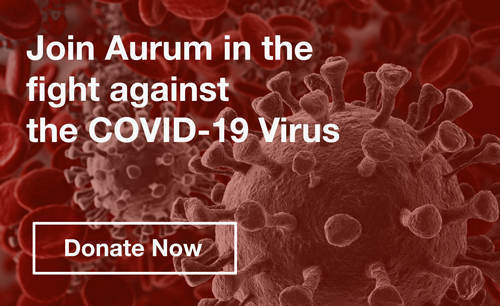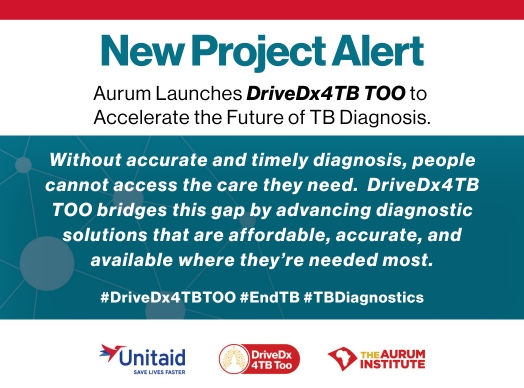Aurum Senior Researcher Dr Yuri van der Heijden, has received a 5-year grant for a study on drug-resistant TB from the National Institutes of Health (NIH).
Van der Heijden, holds a joint appointment at Aurum and as Assistant Professor of Medicine in the Division of Infectious Diseases at Vanderbilt University Medical Center (VUMC).
As the principal investigator in the study titled: “Poor Treatment Response and Outcomes in Bedaquiline-Based Treatment Regimens for Drug-Resistant Tuberculosis in South Africa,” he will be directing the study activities and making sure all the work is coordinated, including input from all the study collaborators. This includes Professors Gavin Churchyard, Group CEO and Violet Chihota, Senior Lead Scientist, Drs Peter Rebeiro and Bryan Shepherd at VUMC, Prof Rob Warren and Dr Anzaan Dippenaar at Stellenbosch University; and Prof Gary Maartens and Dr Paolo Denti at the University of Cape Town.
“I am really thankful for the opportunity to have a joint appointment. This will help immensely in terms of coordination with our amazing colleagues and access to the excellent resources at both institutions that we will need for the study,” said van der Heijden.
Before the availability of new drugs, including Bedaquiline, to treat drug-resistant tuberculosis, treatment outcomes were discouragingly poor. However, van der Heijden said the use of new drugs and drugs that were not previously used for tuberculosis treatment have revolutionized the ability to treat drug-resistant tuberculosis successfully. Treatment outcomes with these new and repurposed drugs are much better and can largely avoid the use of more toxic drugs. “Unfortunately, we have started seeing resistance to the newer drugs, including Bedaquiline. For our study we seek to understand whether we can predict which patients will not have successful treatment with regimens that contain Bedaquiline and are at risk for developing further drug resistance,” added van der Heijden. The study hopes to identify clinically relevant and laboratory-based factors related to cases in which individuals with drug-resistant tuberculosis treated with regimens that include the drug Bedaquiline do not have successful treatment.
World leader
South Africa has been a world leader in the use of new regimens to treat drug-resistant tuberculosis, therefore van der Heijden and the team want to study what is occurring in a real-life, programmatic setting. The study will utilize the robust infrastructure of the South African National Health Laboratory system and the electronic drug-resistant tuberculosis register to assess programmatic poor treatment response among patients with drug-resistant tuberculosis in the Gauteng Province of South Africa. “We will perform minimum inhibitory concentration testing of Bedaquiline and companion drugs on routinely collected specimens to determine whether elevated minimum inhibitory concentrations of Bedaquiline in phenotypically Bedaquiline-susceptible pre-treatment isolates are associated with poor treatment response or outcomes.” Whole genome sequencing on routinely collected specimens will allow simultaneous characterization of the underlying molecular epidemiology of drug-resistant tuberculosis. “We will also use a novel approach of using the concentration of drugs with different half-lives determined programmatically and pharmacokinetic modeling to evaluate association with time to culture positivity and treatment outcomes and will combine mycobacteriologic factors, drug concentration data, and clinical data to develop a prediction model for poor treatment response and outcomes,” he said.
Targeted intervention
Upon findings, van der Heijden said this will guide targeted intervention strategies for individuals at high risk for poor treatment response, inform rapid drug susceptibility tests that incorporate genotypic data for Bedaquiline and companion drugs in new treatment regimens of drug-resistant tuberculosis, and explore the potential importance of measuring drug concentrations early during drug-resistant tuberculosis treatment. He added the insights gained about genotypic and phenotypic variation in relation to treatment outcomes of RR-TB will be highly valuable not only for South African tuberculosis programs, but also for high-burden and under-resourced settings worldwide. “I have had a great group of mentors so far and I’m thrilled to have a world-class team of collaborators for this project. It’s a real honor to receive this grant, and God-willing our results will eventually help many people with drug-resistant tuberculosis,” said van der Heijden.














